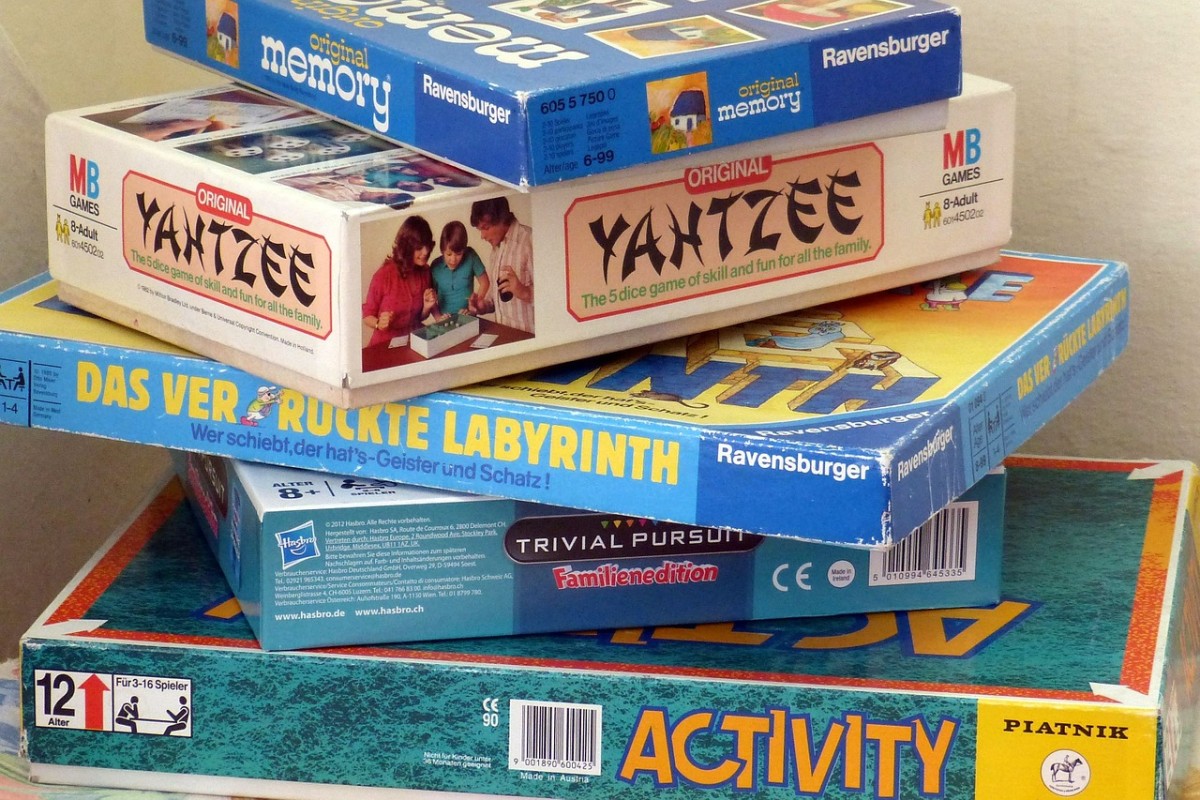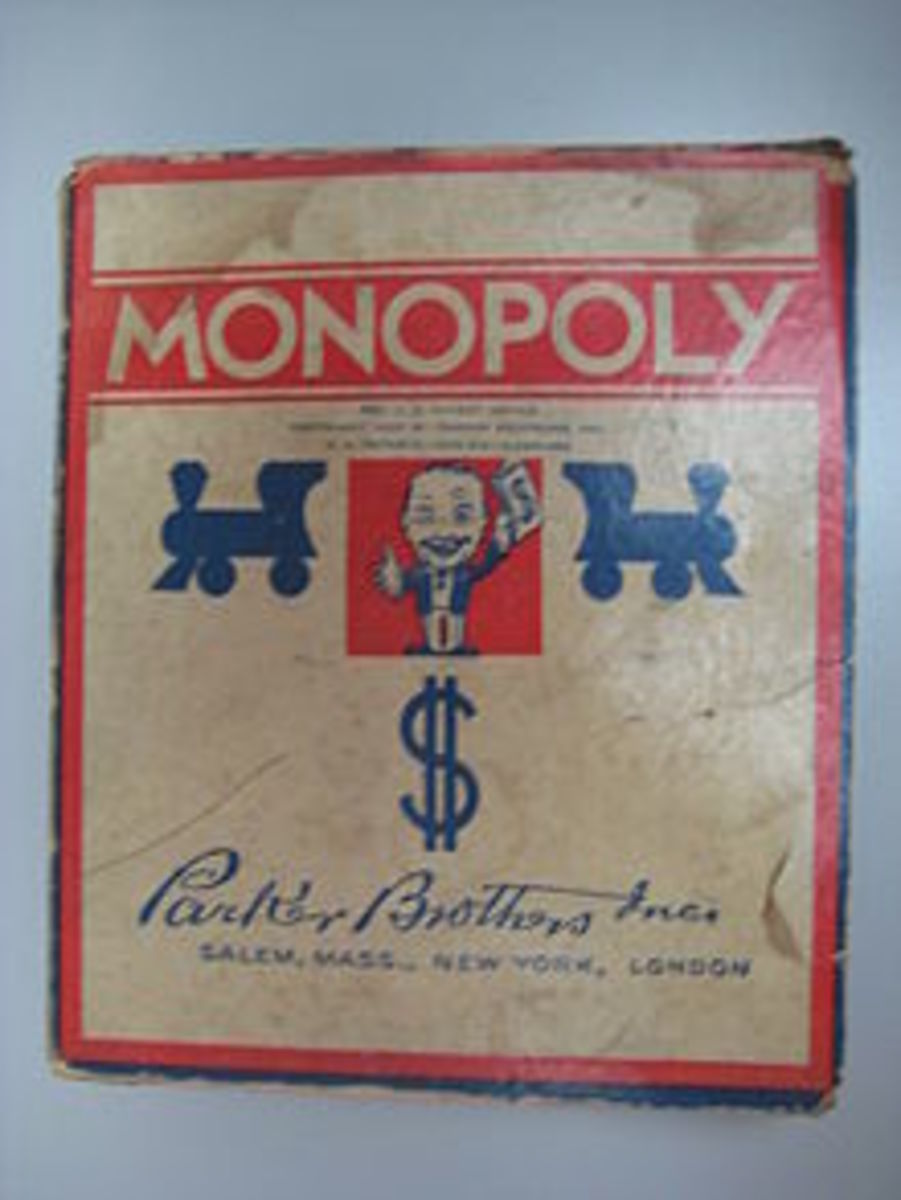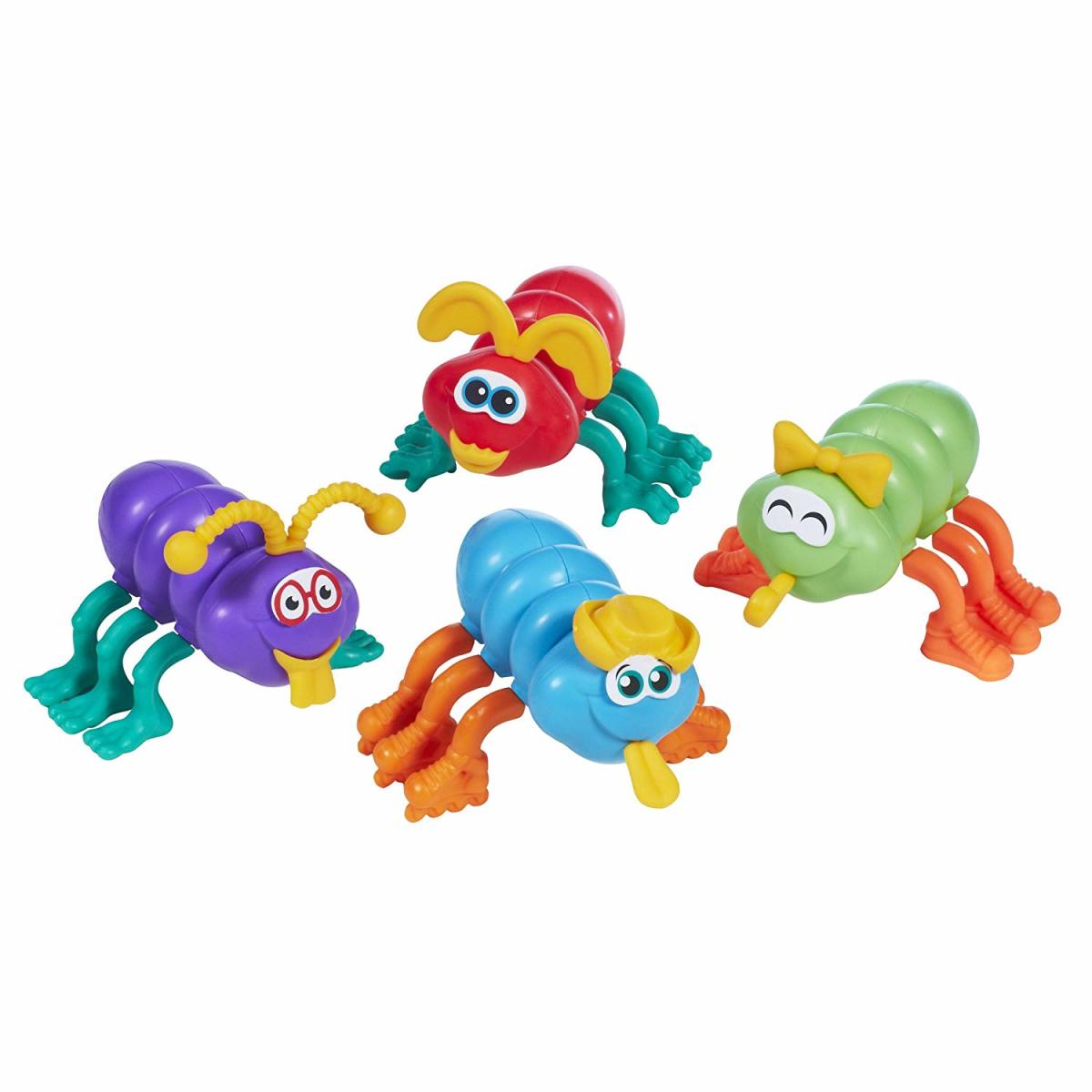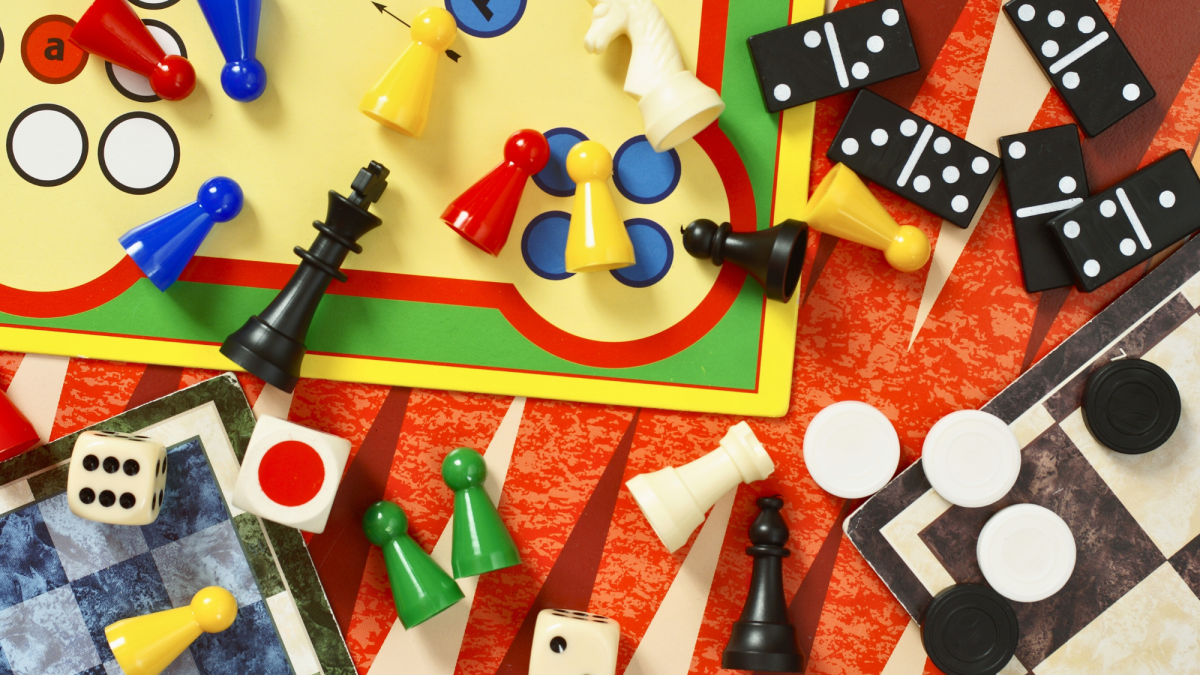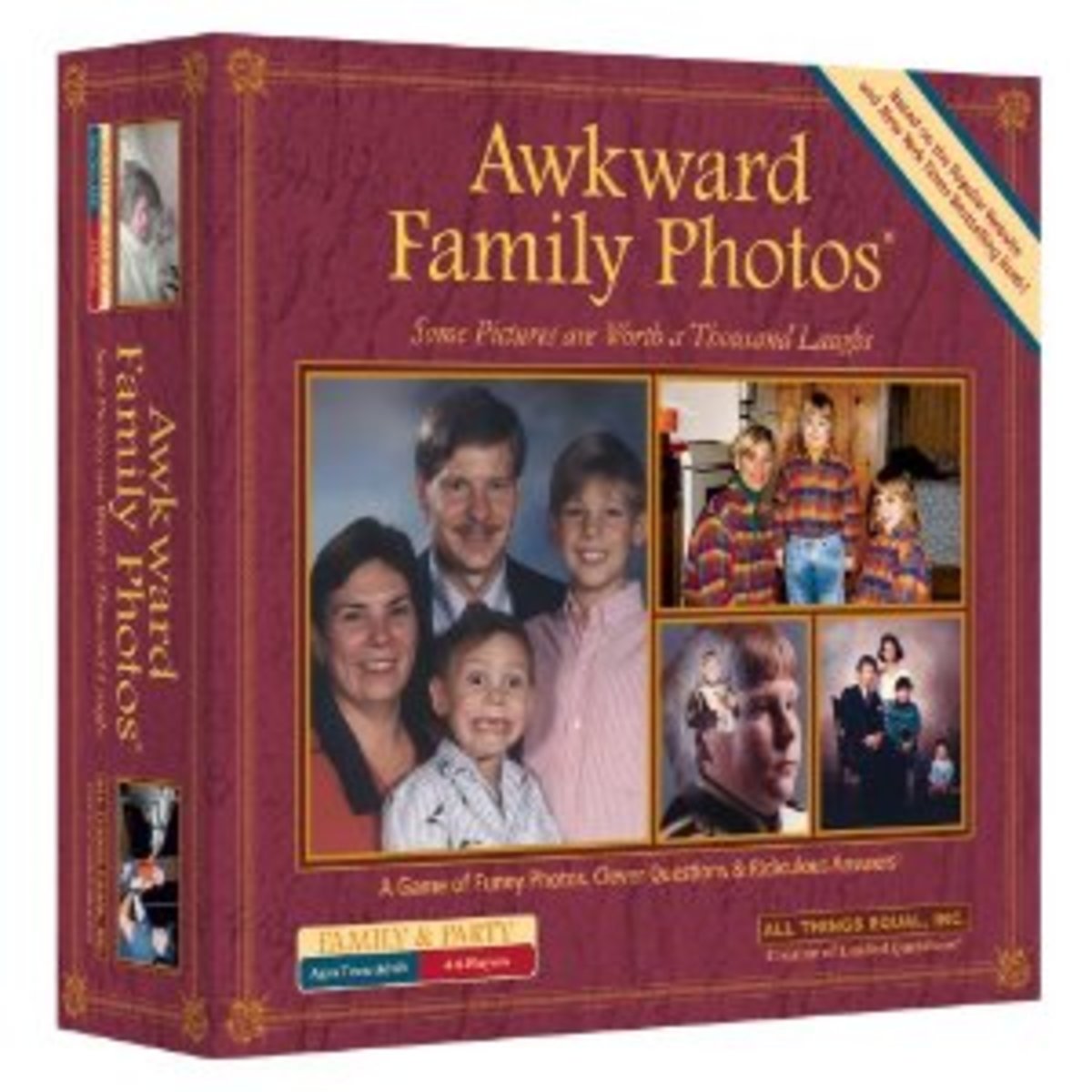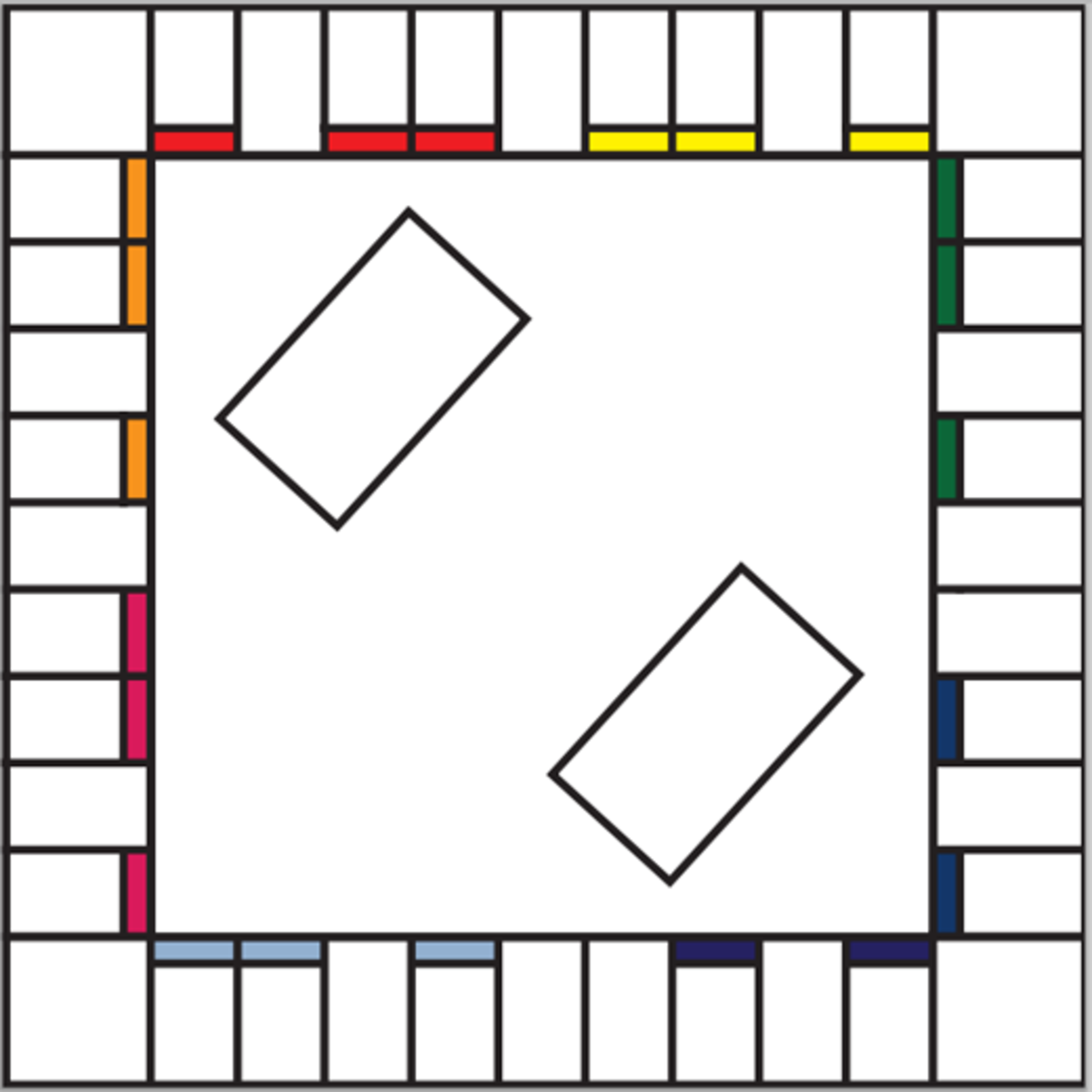What is the best children's game?
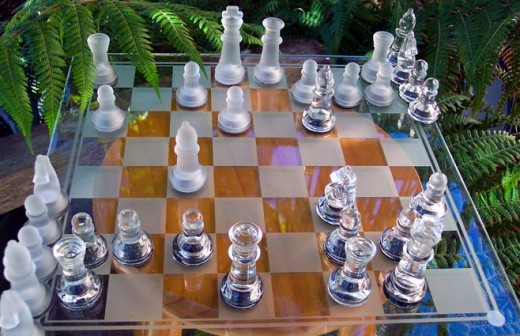
What are the best tradtional and board games for family fun?
Rainy Sunday or Snowed In - get out the Scrabble.
Children learn a lot through play as it provides a stimulating learning experience for them. In today’s world, video games, consoles and hand-held computer games are extremely popular and do serve to teach children various skills. However, many are played alone and do not help children to interact and learn social skills, communication, or turn-taking. Plus, they are expensive to buy the console, the games and the batteries.
With traditional games, some rely on skill and strategy, others are just simply down to luck, but all can be enjoyed. Most games will involve a degree of random luck in the roll of the dice or the pick of the card, but players must use their skill and judgment to decide and plan moves or actions.
To enjoy a wide range of games, invest in a compendium of board-games, they can be quite inexpensive and make a great stocking filler or they can be a treasured gift, in a stylish wooden box with carefully crafted playing pieces, that may well become a much-loved heirloom that is handed on through generations.
To help your child pass those all-important developmental milestones in a fun and creative way, spend time together interacting with traditional and contemporary games, either board games or favourite family games, where the whole family can spend time together, pitting their skills against one another. Although you may prefer to read the newspaper, or there are pressing chores to be done, you will be surprised at how much you enjoy spending special time together, relaxing with a game and watching how quickly your child picks up the rules.
The seven areas of a child’s development have been identified as the seven c’s and they are:
- Confidence
- Co-ordination
- Communication
- Co-operation
- Concentration
- Competence
- Creativity
If you are caring for a child, as a parent, guardian or childminder, it is helpful to have a wide range of games available that children can play to develop this range of skills. Games can be very simple, many will not actually require any expense, some will just need a pen and paper, a pack of cards, some dominoes or a simple dice, board and counters. To help children understand rules of games and plan strategies, it is even fun to make your own boardgame. Try taking a time line such as The Romans or The Vikings and making it into a version of snakes and ladders, so children are creative in making the games, learn important dates and have fun in a way that is cheap and easy to do.
Games that require turn-taking will help develop co-operation as children need to learn to wait for their turn. Strategy games will help improve a child’s concentration as the game requires the player to remember sequences that have taken place or work out the consequences of various moves that will take place depending on how the game is played. Role-playing games such as charades will help boost a child’s confidence and games that require careful balancing such as Twister, Jenga, Kerplunk or pick-up-straws will help a child’s fine motor skills.
Other games will help mathematical and numerical skills as children need to work out the numbers to play the game. Any game that uses a di (or dice if more than one) will help numerical skills as they have to add up the score. Even a simple game like darts (use Velcro ones for young children) will help a child with hand-eye co-ordination and numerical skills to keep the score. Similarly, simple dot-to-dot pictures help children to learn the number sequence of counting as well as developing hand-eye co-ordination to join up the dots. Colour the finished picture in to aid creative skills and check to make sure that the child has coloured the picture realistically, yellow bananas and orange oranges.
Playing word games helps boost children’s vocabulary and spelling. Scrabble is an all-time favourite, perfect for helping develop a child’s vocabulary and spelling, but it also develops strategy skills and numerical skills as players need to find the best place to put their word on the double or triple word squares. Playing a game of hangman helps children to understand the frequency of vowels and their usual placement within the word and helps children to recognise common sequences of letters in their language. “I spy” is also useful for practising spelling and observational skills and is great for long car journeys.
Playing simple word games can help children’s creativity. Try playing in a group where each takes turn to say a word of a story, starting “Once” “upon” “a” “time” “there” lived” “a” ... the group of children are in control of the story and this is useful for co-operation and communication skills as the child needs to wait turns and choose words carefully to steer the story. You can also play “Fortunately/Unfortunately” where each player takes it in turn to say a sentence starting first with “fortunately”, followed by “unfortunately”, so for example, “Fortunately, Jonny had chosen the six winning numbers for the lottery jackpot, unfortunately, he lost the ticket, fortunately, he found it again” and so it goes on.
Memory games are useful to help children’s concentration, simple shopping lists where you start with “Mary went to the shops and she bought some…jam”. The next person will repeat this and add another item, “some jam and some bread”. The next person will repeat and add a third item. This can be a fun way to learn punctuation, with each child miming a swooping motion for a comma for each item in the list until before the last child in the game takes their very special turn, remembering the important “and” but no comma. This is also an extremely useful game for learning foreign languages, to grow the vocabulary, practise pronunciation and remember the words through the repetition.
Some board games are long established family favourites, played over the years by different generation of families on rainy Sundays. Many games have smaller travel versions or magnetic versions for playing on long journeys. Some have much bigger version for playing in the garden, like giant chess, Jenga or Connect 4.
Many manufacturers keep their games looking fresh by re-styling them and giving them a modern twist to keep up with the times. Monopoly, for example, which involves a person playing the banker handing out token money to each player for them to buy property with, has a version where you can use a credit card machine rather than the toy money. This is great for teaching children about today’s society and “virtual” money where purchases are made by card rather than handing out cash. You can also find variations of Monopoly where the building tokens can be stacked on top of each other as a sky scraper rather than side by side on the board. Monopoly was traditionally based on London street names, but now
there are many different versions, to help children with geographical knowledge.
Children can learn to play an old-time favourite with a modern twist such as The Simpsons, which has been adapted to both Cluedo and Chess.
Scrabble is a favourite word game, but there are others that have a similar principle to practise making words from tiles, such as Banagrams and Boggle.
For children who enjoy both board games and their video consoles, you can often get the videogame version of the board-game, perfect for learning obscure Scrabble games from the computer to ensure success against your human opponents.
Here are some ideas for trying out different types of traditional and board games that children are sure to enjoy:
Strategy Games
Tic Tac Toe (noughts and crosses)
Draughts
Chess
Connect 4
Mancala
Battleships
Solitaire (Chinese Checkers)
Mastermind
Backgammon
Go
Cluedo
Role Playing Games
Charades
Quiz Games (General Knowledge)
Trivial Pursuit
Coordination Games
Jenga
Tiddlywinks
Twister
Operation
Kerplunk
Snap
Dice Games
Snakes and Ladders
Frustration
Ludo
Yahtzee
Word Games
Scrabble
Banagrams
Upwords
Boggle



